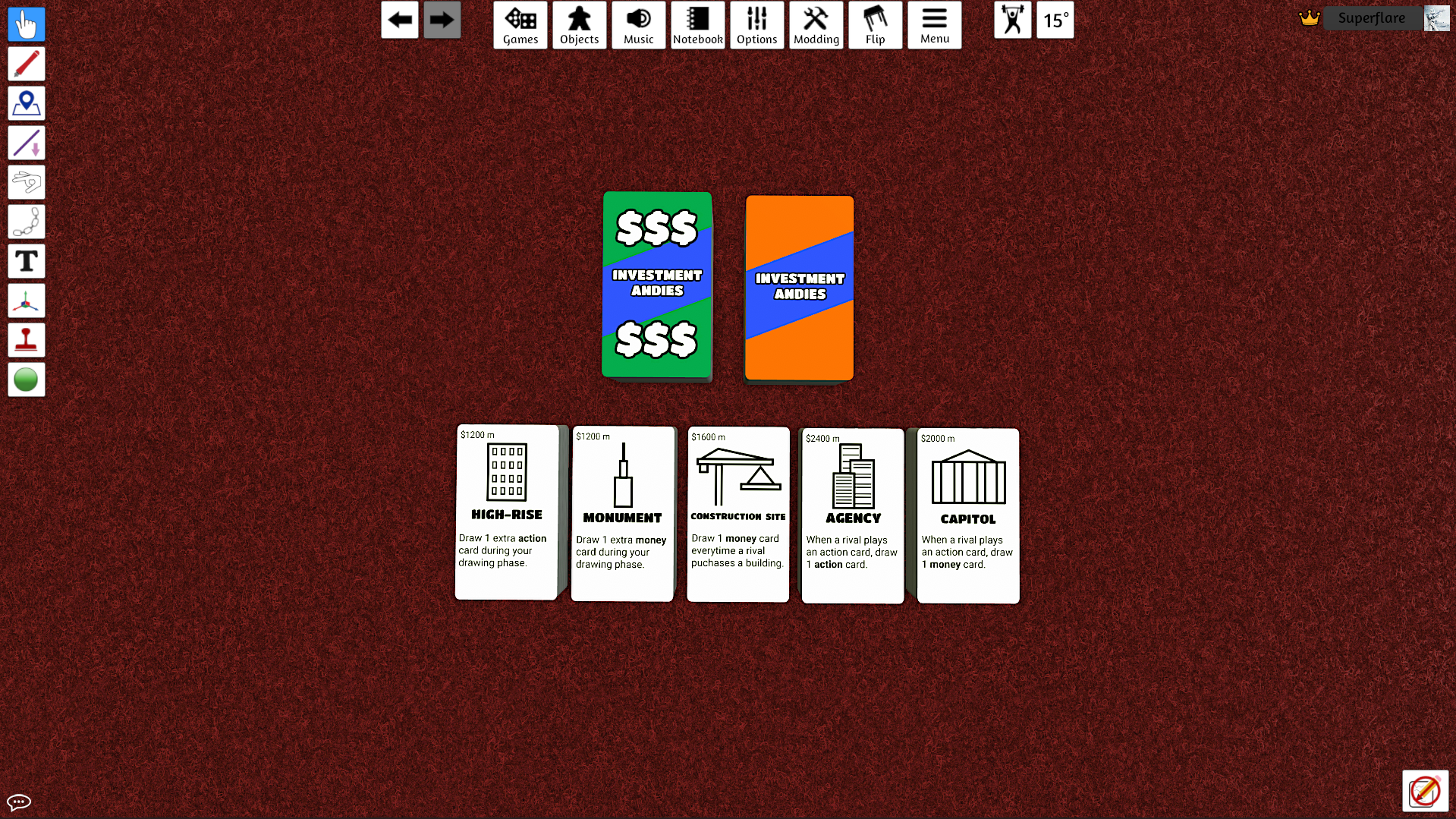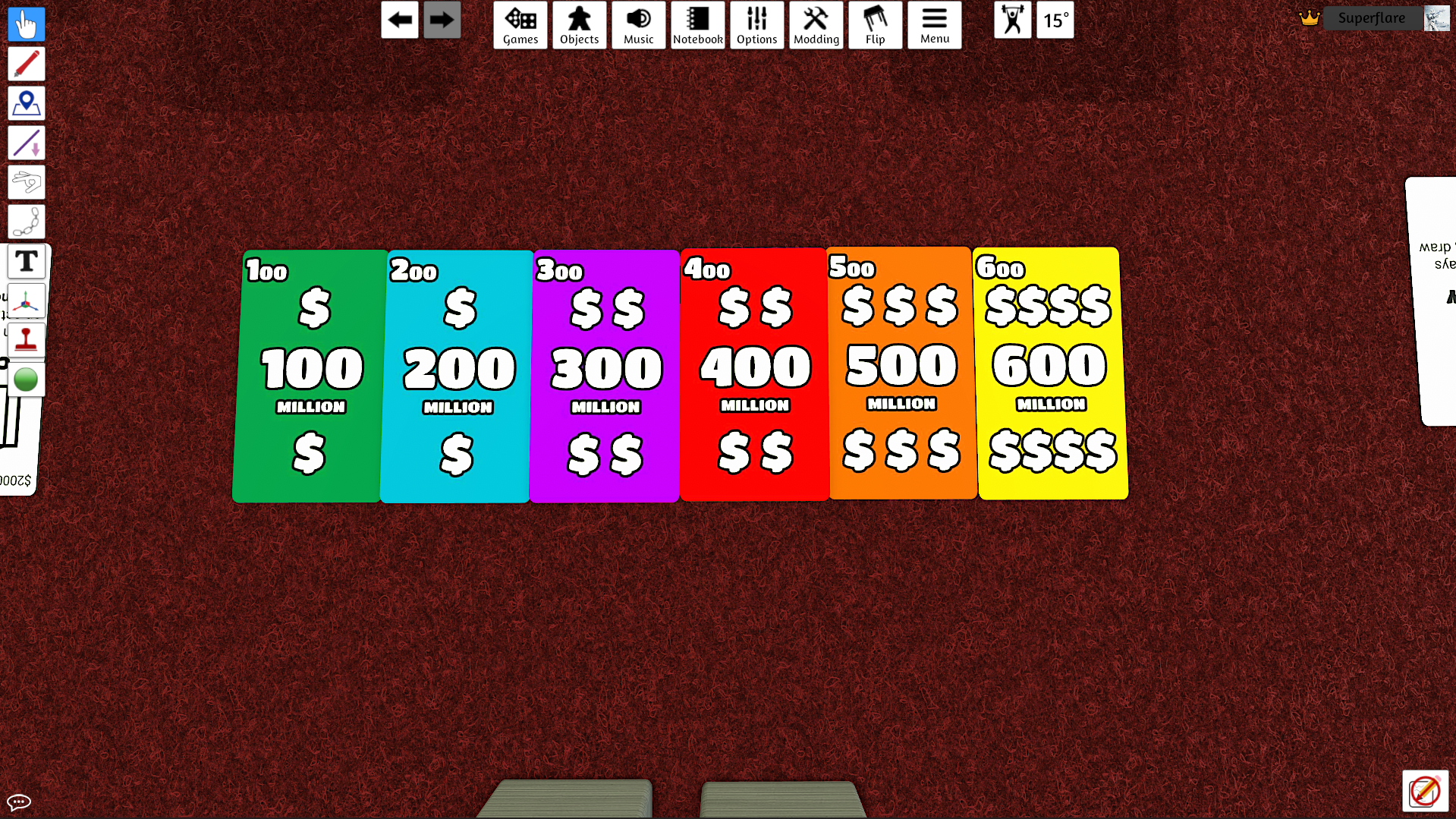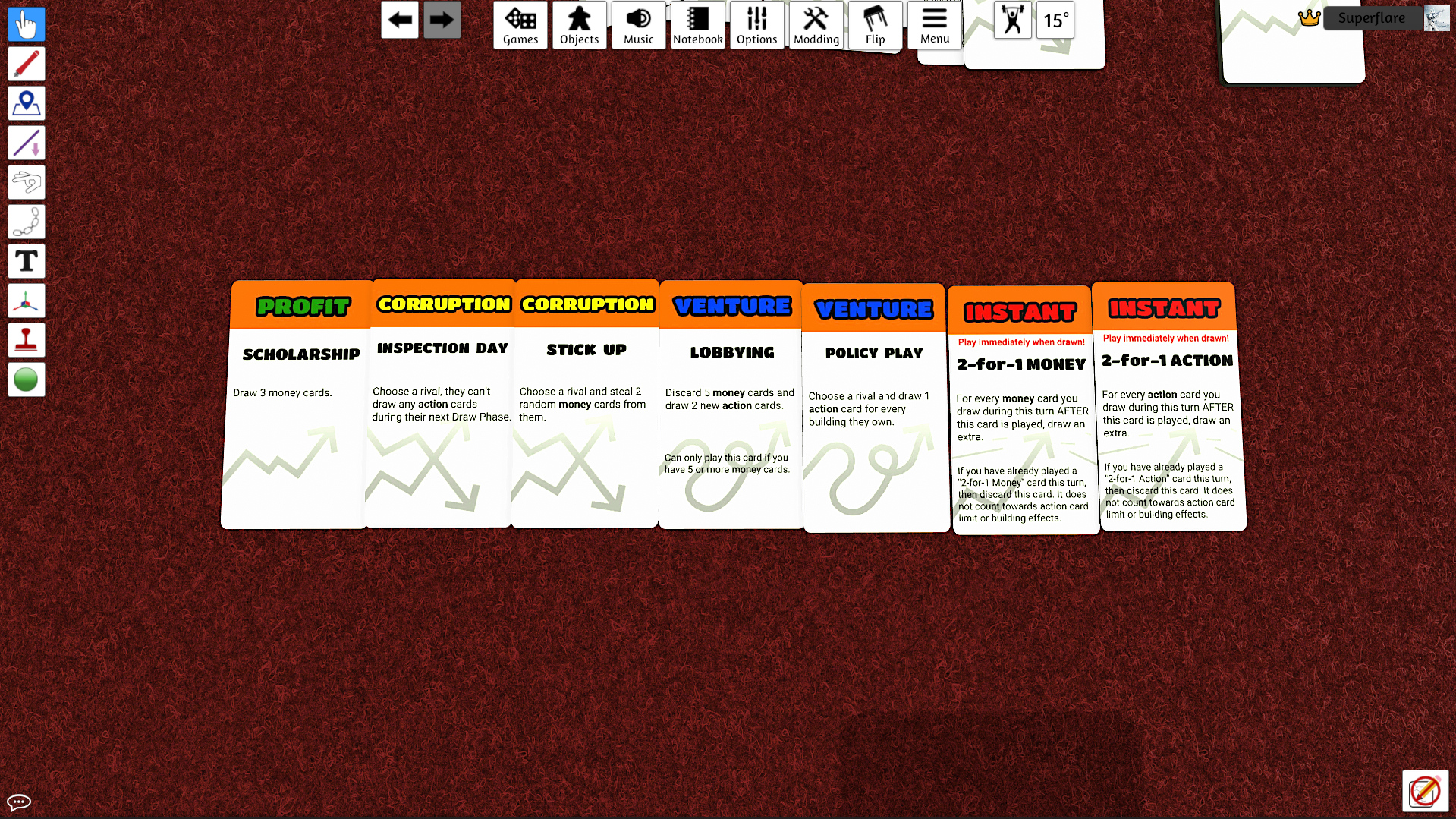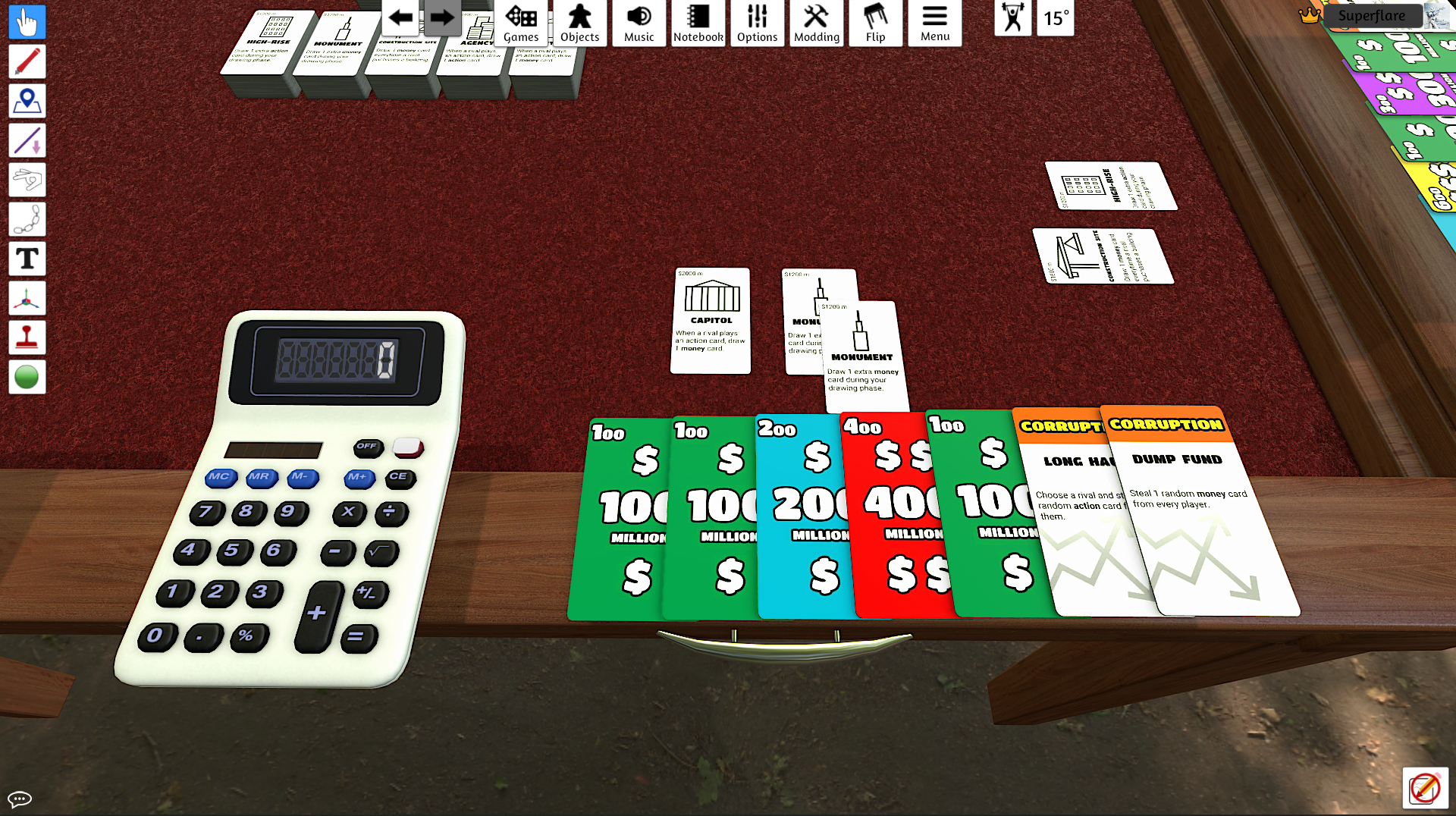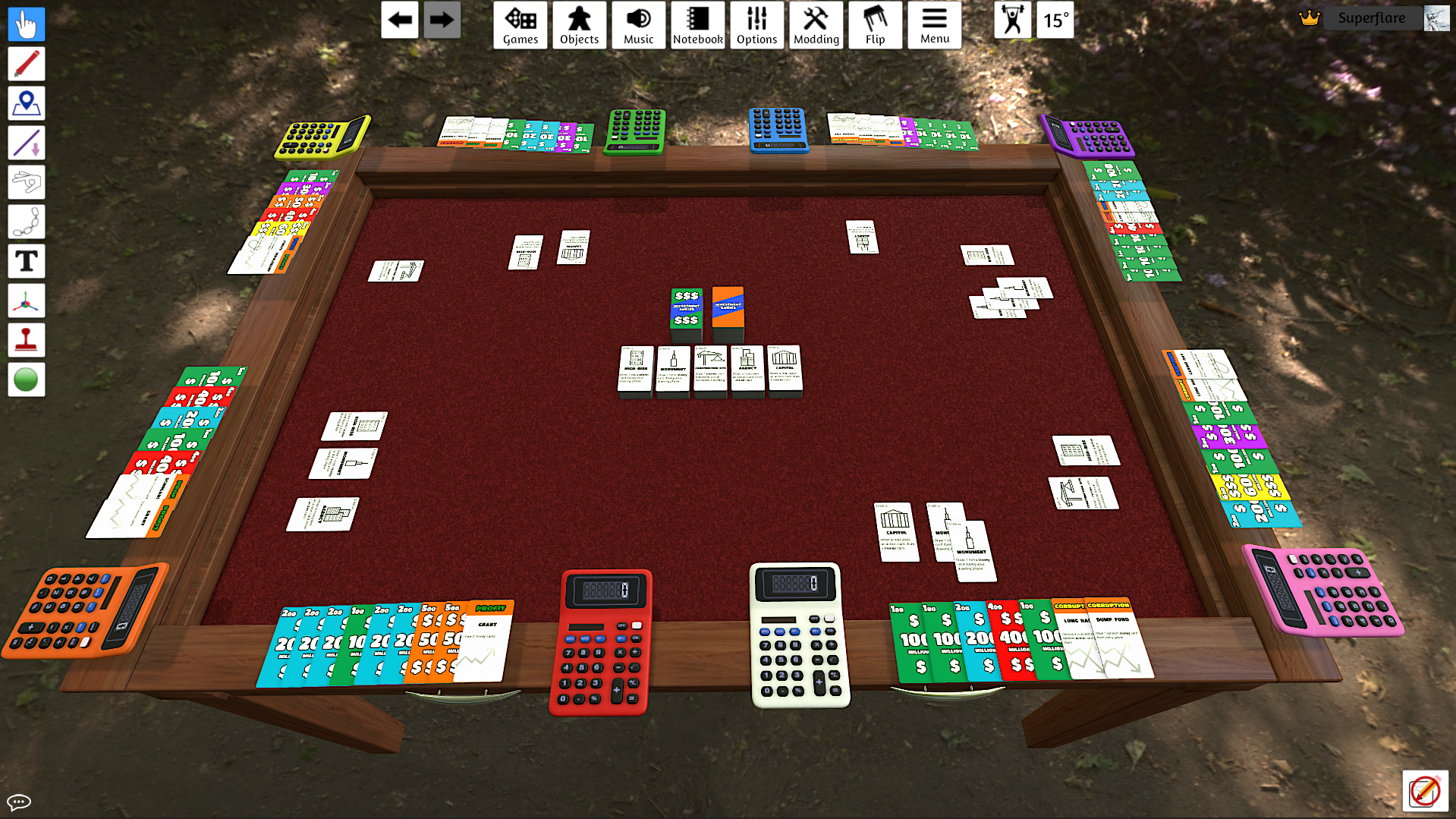Investment Andes
Timeframe: 2 Months
Role: Game Designer and Playtest Coordinator
Tools: Tabletop Simulator
Skills: Teamwork, Communication
A fast-paced and high stakes card game intended for play in tabletop simulator. Make smart
investments into buildings that you think will give you the most benefit and use any action
cards you get to give yourself an advantage over the other players. The game only continues
while there is still money left in the deck, so once the economy dries up, the player with the
most money wins. Investment Andes was a group project and my contribution, along with my other
teammates, was the balancing of the game, the ideas for buildings and action cards, and the rules
of the game.
There are 5 building options that all players have access to purchase, and they each have passive
effects that in some way increase the amount of cards in your hand. The two cheapest buildings have
the effect of increasing your draw at the start of your turn of one of the card types while the more
expensive buildings will let you draw cards in response to the other players' actions. With only the
building system, players with more money will simply be able to buy the better buildings and only get
richer from there. To make the game more fair and randomized, action cards are an additional deck that
you get to draw from that offer all sorts of effects. With action cards, you can stop other players'
buildings from functioning, steal cards from another player, draw more cards, and reduce the cost of
the buildings on your turn. The balance is never perfect because most players don't know that they should
be trying to get more action cards when they're lower on money instead of money cards, but still with
action cards the game gets more chaotic and competitive between the players.
- Challenges:
- Balancing the game in such a way that the rich don't always get richer but also that money received feels earned and worthwhile.
- Maintaining the feel of the game for both small and large player groups.
- Keeping the game's fast pace even when players need to count their money for every purchase and strategize what building to purchase.
- What I did well:
- Reduced the number of buildings available in the game to an easily comprehensible 5. Originally there were way more buildings with various inconsistent effects and it was way too much.
- Gave players calculators to use and lowered the value of money as a whole so calculations for purchasing buildings and counting each player's final score.
- Designed a comprehensive and easy to read pdf of the game's rules that allows for quick access to labeled topics that a player would be specifically searching for.
- What I would change/improve:
- In general the action cards need to be seen by newer players as a viable option instead of them thinking they only need money. Possibly add more card examples in the rules so they understand what action cards can do.
- Action cards are a bit too strong I think, once players realize what they can do it's normally the player who gets the most action cards who wins the whole game. Lowering the limit of action cards that can be played in a turn could reduce their turn-by-turn strength and reducing the number of action cards that are: "Draw X money cards," or changing their effect to be more conditional.
